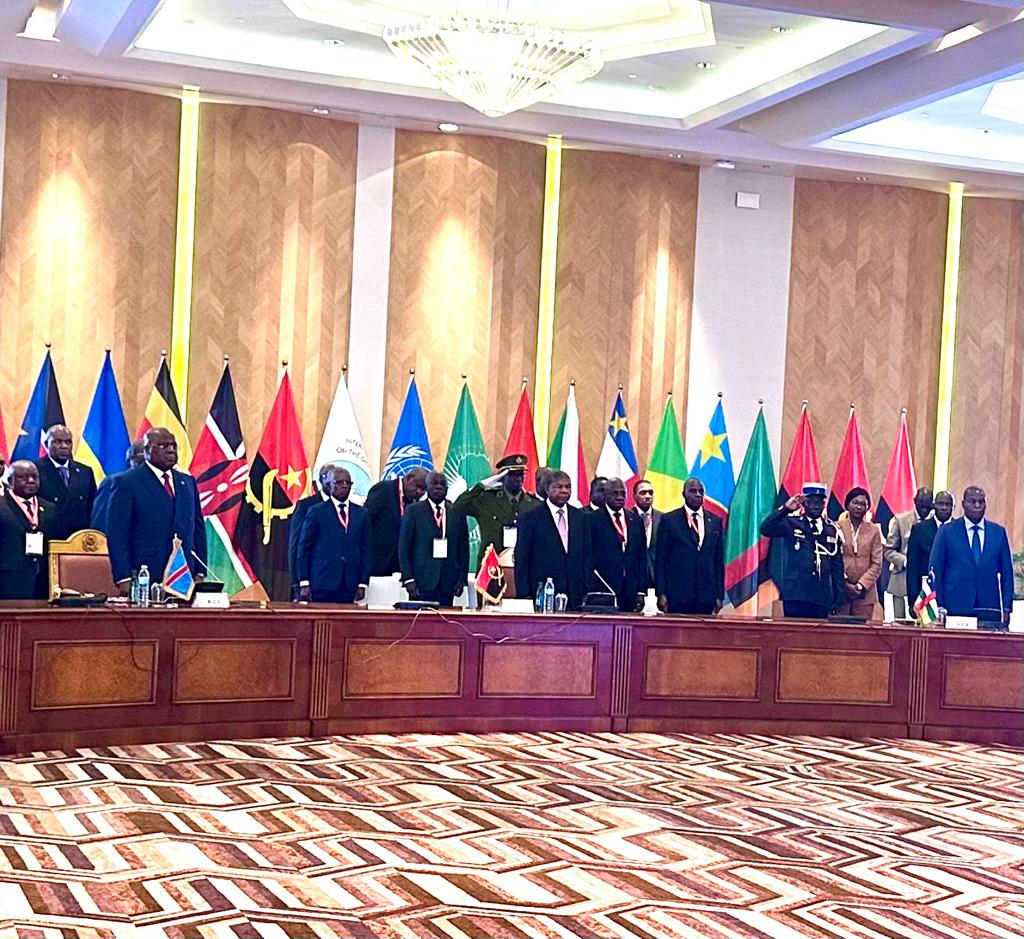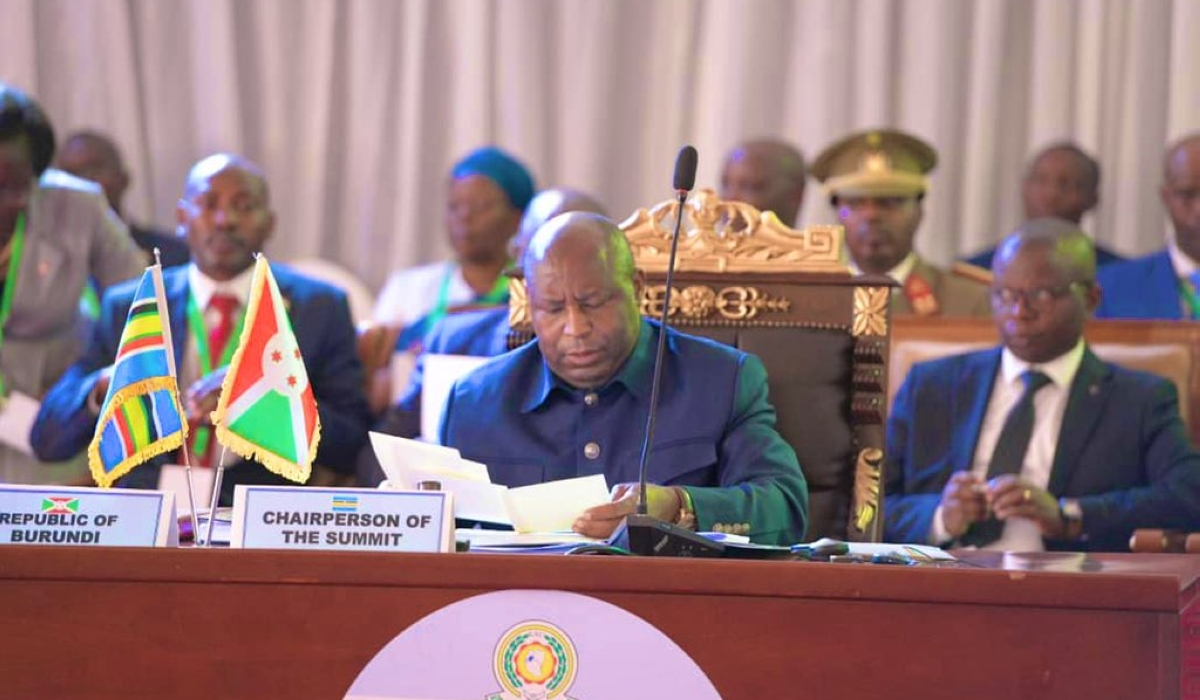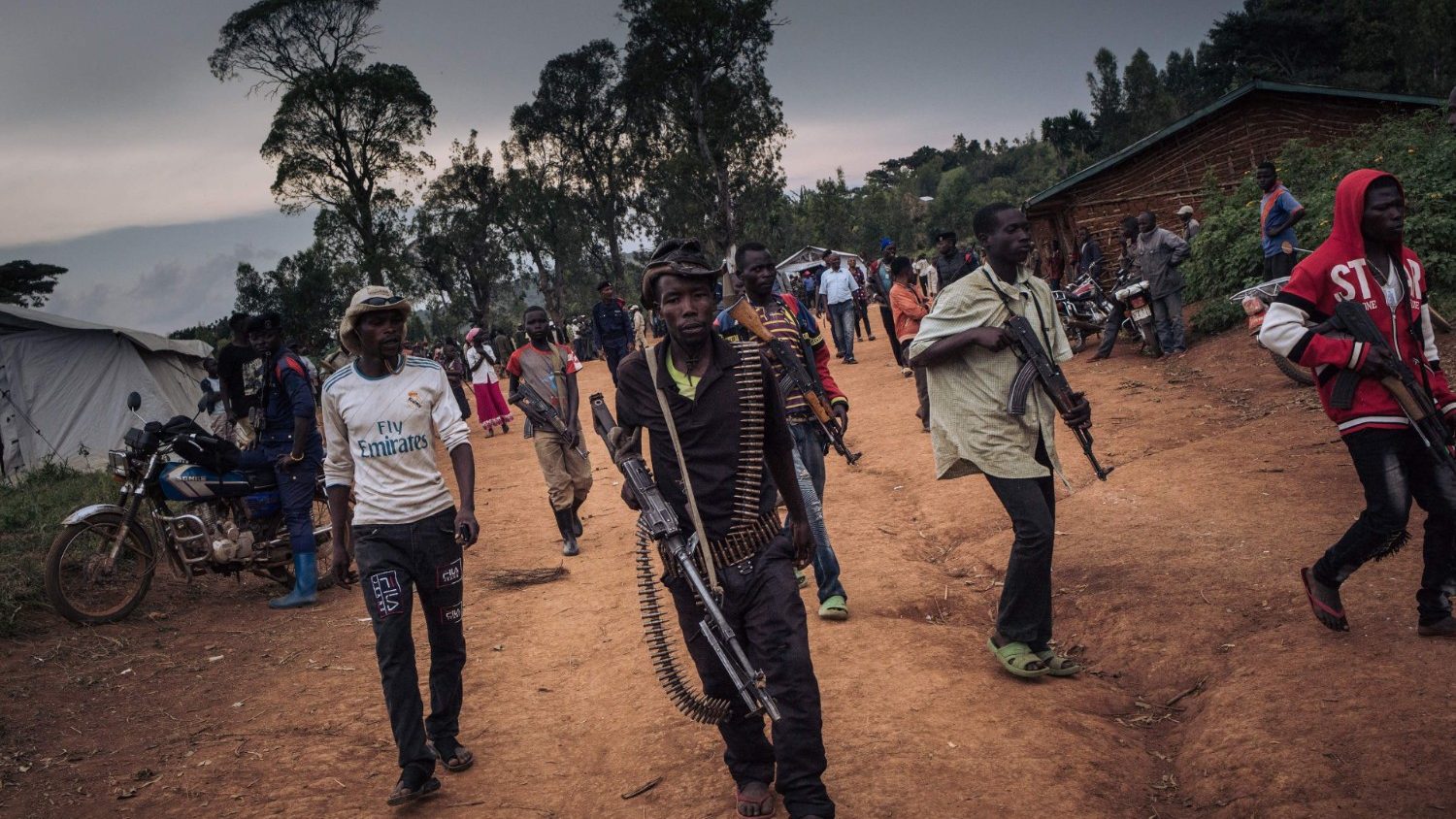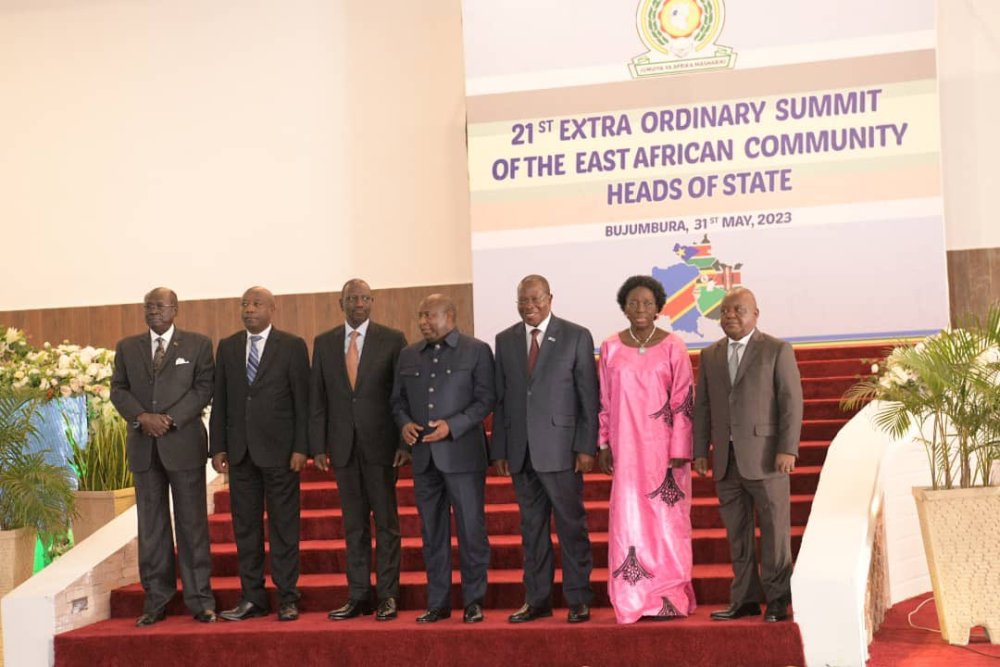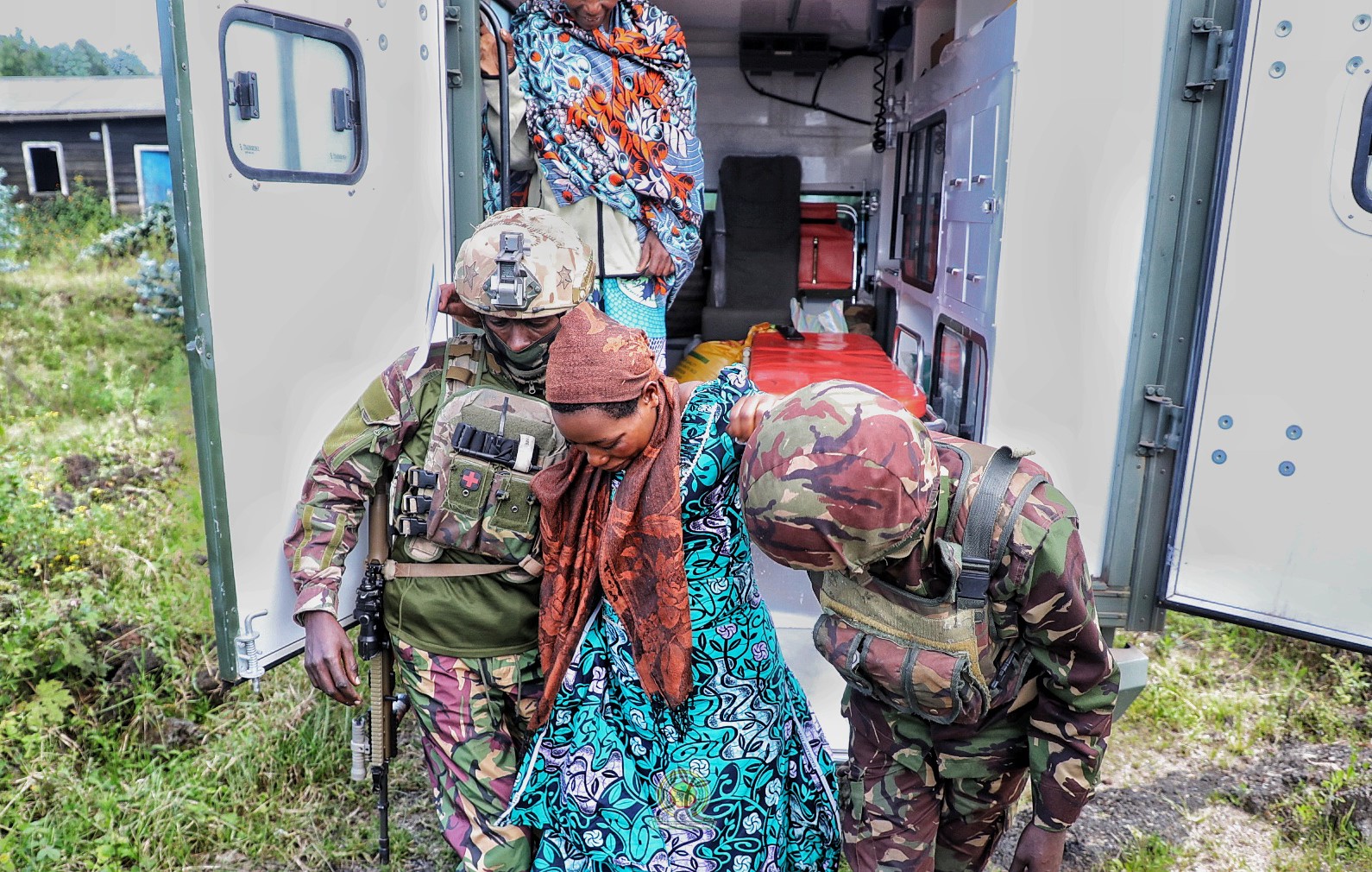Regional
EAC led inter-Congolese dialogue should not ignore root causes of DRC crisis
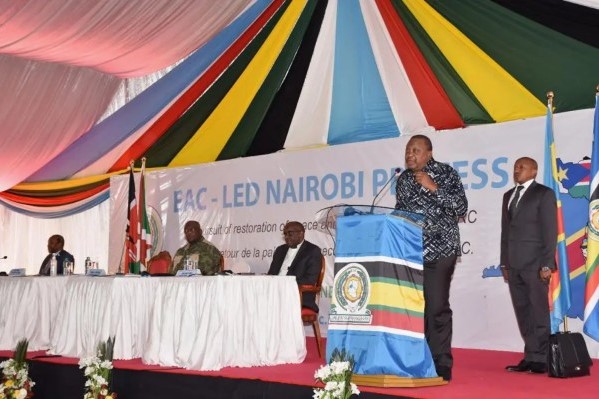
The
East African Community Heads of State, on May 31, held the 21st
extraordinary summit in in Bujumbura, Burundi. On agenda was the security
crisis in eastern DRC.
Among
the key resolutions of the summit was that the security situation in eastern
DRC can only be sustainably resolved through a political process and dialogue
among all parties. Kinshasa was urged to work with the facilitator, Uhuru
Kenyatta –former Kenyan president – in setting the appropriate dates for
resumption of the inter-Congolese dialogue.
Inter-Congolese
dialogues are held under the EAC-led Nairobi process. So far, three have been
conducted, convening Congolese armed groups, civil society groups, Congolese
leaders, and victims of sexual violence.
However,
the Nairobi talks failed to include the M23 rebels. Without involving all
partners having a hand in the crisis, a breakthrough in ending hostilities is
unlikely.
Although
well intentioned, the EAC is missing an opportunity in addressing the root
causes that led to the grievances in the first place.
Genocide ideology
One
of the key reasons why the M23 rebels are fighting, is to protect the lives of
the Congolese Tutsi.
Twenty-nine
years ago, in Rwanda, genocide ideology resulted in the 1994 Genocide against
the Tutsi. Following the defeat of the genocidal regime, the Rwandan
génocidaires fled to DRC, where they were welcomed, given a safe haven and
later formed the FDLR.
Apart
from forming a terrorist group, FDLR, intent on finishing the ‘uncompleted
genocide’, they mingled with the then peace-loving Congolese population, and
slowly injected them with their genocide ideology. Today, in DRC history is
repeating itself. Congolese Tutsi are being discriminated, tortured and killed.
No
single individual was tried for inciting hate speech, killing Congolese Tutsi,
or looting and damaging their properties.
Following
her official visit to the DRC, UN Special Adviser on the Prevention of
Genocide, Alice Wairimu Nderitu, issued statements on two different occasions,
denouncing the abuses occurring in eastern DRC, including the targeting of
civilians based on their ethnicity or perceived affiliation (Tutsi Congolese).
“The
current violence is a warning sign of societal fragility and proof of the
enduring presence of the conditions that allowed large-scale hatred and
violence to erupt into a genocide in the past,” she said.
For
decades, Kinshasa has refused to take serious action against this genocide
ideology, which led to the formation of M23 as a means of self-defence. It is
imperative that the inter-Congolese dialogues address this issue once and for
all.
On
January 12, following a consultative meeting with the M23 leaders, Uhuru
Kenyatta, the EAC facilitator, acknowledged that they had agreed to withdraw
from their occupied territories. From there, the rebels noted with appreciation
that the fourth Nairobi consultations will directly seek to consolidate all the
gains of the last few months and assist in bringing greater peace and stability
in eastern DRC.
But
Kinshasa has adamantly refused to dialogue with the rebels, and instead branded
them as terrorists. One can only hope that despite their absence the Nairobi
talks will address their problems.
Armed groups
Presently,
there are more than 130 local and foreign armed groups operating in the
country’s restive east.
Many
of these groups receive support from the Congolese government and security
forces. They include FDLR – a Rwandan genocidal terror group formed by remnants
of the masterminds of the 1994 Genocide against the Tutsi – and ADF, a Ugandan
terror group.
These
armed groups thrive through illegal mining, illegal trade, looting, taxing
citizens, and theft.
Congolese
army commanders sell arms to armed groups they are supposed to fight, and
report ghost numbers of military personnel to increase their monthly earnings. The
plague of bad governance continues to affect the country, because all these
individuals responsible go unpunished.
The
country’s governance deficit, where public
administration is in shambles and civil servants mutated into predators, people
expect very little from the state, government or civil servants. This makes it
impossible to ensure their security, wellbeing or any glimpse of development
According
to the UN Refugee agency, in 2023, as a result of violence generated by armed
groups, 5.8 million people were internally displaced across the provinces of
Ituri, North Kivu, South Kivu and Tanganyika, in the east of DRC. Over one
million Congolese refugees and asylum-seekers are in countries neighbouring the
DRC.
Kinshasa
and EAC should understand that finding a solution to the ongoing conflict in
eastern DRC would require addressing the underlying causes of the violence.
The
eastern DRC conflict needs a better diagnosis. A good look at what’s underneath
is the only approach that will help the country, and the region.



